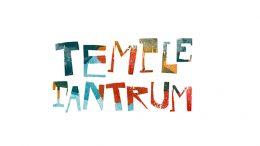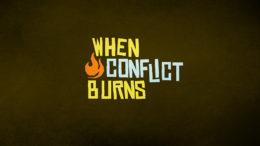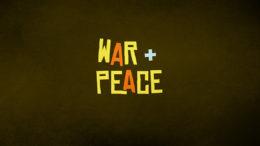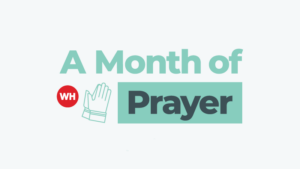Watch/Listen
Topic: Conflict

Your Map Is Not The Territory
Today’s sermon focuses on a strategy from Philippians 2:3-8 that demonstrates a kingdom way to engage with other people during conflict: remembering that our “map” (our brain’s interpretation of sensory input) is an incomplete representation of reality, and to step into and seek to understand the other person’s “map”.

Temple Tantrum
In our new Turning Over Tables series, we examine how central Jesus (as well as other new testament authors) placed our call to non-violence. In fact at one point in the Sermon on the Mount Jesus pre-conditions being considered a child of God to our love toward enemies and refusal to return evil for evil. Many throughout history have tried to twist scripture to fit certain personal or other non-Kingdom nationalistic agendas, but Jesus’ call to us is that His Kingdom is not of this world. What makes His followers distinct is our refusal to engage in violence no matter the “just” circumstance. Read More

One Weapon
In this final sermon of the Without Borders series, Greg explores our ultimate weapon for fighting the powers of this present darkness. (Hint: it isn’t more darkness) Read More

Risky Family
We often craft together ideal images of of what a “good Christian” family ought to look like. Images of the idealistic post-war, bourgeois nuclear families are more frequently articulated as the “biblical” family. But, is that accurate? Greg provides for us a snapshot of the various families portrayed throughout the biblical narrative. From Adam and Eve to Solomon and his many wives and concubines, to Abraham and Sarah, we gather a sense that “biblical” families are just as messy and dysfunctional as what we may witness today. The hope of the family unit is Christ! The Christ who works within the mess of it all to make something beautiful. Read More

Risky Friendship
Being made in the image of God means that we are created to make and keep commitments. In this second segment of our Worth the Risk series, Seth explores commitment’s role in our relationships. A kingdom relationship is a creation in and of itself, and that creation requires constant care in the form of honest conversations about the things that come between us. Our tendency is to avoid conflict, confrontation, and rebuke because we believe a lie. We believe we can’t be honest and keep our friendships, but like all forms of deception this lie leads to relational death. Read More

Philando and Jeronimo
This weekend’s sermon is a response to the recent police/black lives matter conflicts from Baton Rouge, Dallas and here in Saint Paul. We took a break from our current ‘God In Us’ series to talk about this together. Read More

Life Without Walls
In this, the third message in our Flesh and Blood series, we focus on Jacob’s story in Genesis. His story is a great illustration of how we build walls inside ourselves, and it brings to light who we are really protecting ourselves from. Read More

When Conflict Burns
In this second message of the Flesh and Blood series, Seth describes the unceasing realities of conflict not only in the world in which we live, but also in our own lives; our own relationships, and our own hearts. Walls of conflict exist all around us, and those walls are torn down because one man chose to die. Through Christ’s death, the walls of conflict and separation are torn down. As the head of the church (that is Christ) leads the body (that is the church), the conflicts that divide the world are torn down and truth, justice, mercy and peace become embodied. Read More

War and Peace
In this first message of the Flesh and Blood series, Greg dives in to relational conflict by properly defining kingdom peace and kingdom war. We live in a fallen creation whose inhabitants too often reflect the ideals of the enemy rather than participating in the triune God’s invitation to reflect His perfect love to each other. The principalities and powers play us off one another creating human enemies, but in reality the battle is not against flesh and blood. We were created to fight and protect, just not against each other. Read More

Creation Matters: That, Not How
In this exploration of the Genesis 1 creation story and the young earth theory of creation, Greg presents three reasons why he believes that Genesis 1 was not intended to be taken as a literal account, but rather a narrative to express important truths about who the early Jews were and who their God was. Further, whether you believe in the young earth theory or evolution or some other view, the important thing that we all can agree on is simply the fact THAT God created the world and all life – not HOW he did so. Read More
![]()
"Just a note of thanks. I came across the site, having heard Greg speak in Ireland many moons ago. The church here is a bit jaded, we have found. Groupthink, lack of going deep, fear, perhaps, of facing tough questions. [WH has] great sermons, and not just from Greg. Real food for a somewhat undernourished Irish Christian. Keep it up! Ian from Ireland"
– Ian, from Ireland


